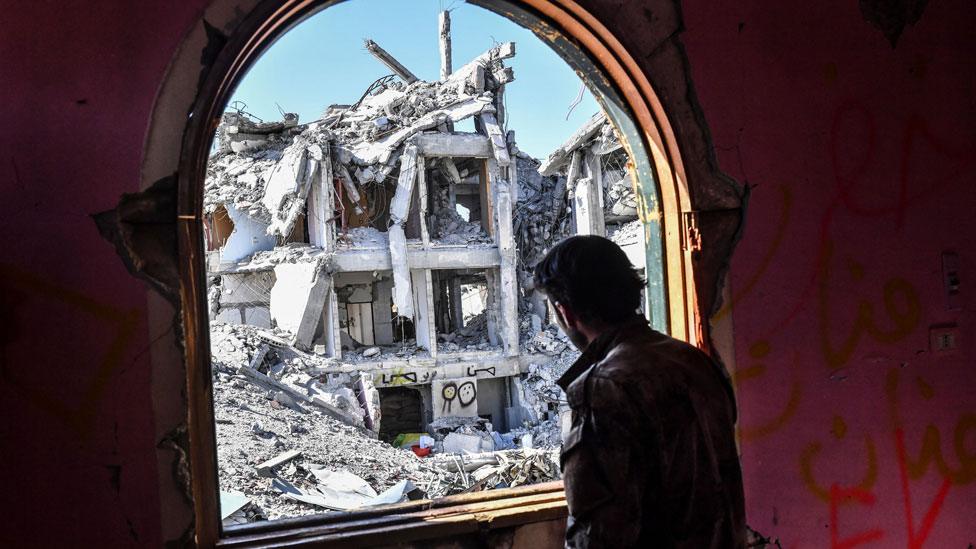'Hundreds' more UK troops to be sent to Iraq - Michael Fallon
- Published
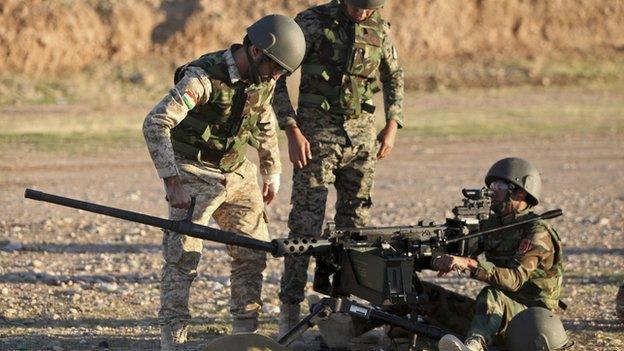
A dozen British trainers were deployed to work with Kurdish forces in the northern city of Irbil in October
Hundreds of British troops will be sent to Iraq in the New Year, Defence Secretary Michael Fallon has said.
The deployment - to help train local forces - will be in the "very low hundreds" but could also include a small protection force of combat-ready soldiers, he said.
About 50 UK troops are already training Iraqi and Kurdish forces fighting Islamic State militants in Iraq.
The Ministry of Defence said the move had not yet been formally approved.
An MoD spokesman said: "No decisions on troop numbers, units or locations have yet been made".
However, speaking to the Telegraph, external, Mr Fallon said the fresh troop deployment would be made in January and would be to four training centres that US forces are establishing.
Roadside devices
It comes after 12 UK trainers were deployed to Iraq in October to work with Kurdish forces in the northern city of Irbil. Mr Fallon also announced plans to boost the UK numbers further last month.
RAF aircraft have been flying missions over Iraq and carrying out air strikes against IS targets since Parliament approved military action on 26 September.
British aircraft had flown a "huge number" of missions "second only to the United States, five times as many as France", Mr Fallon told the newspaper.
"Our role now, apart from the air strikes, is increasingly going to be on training," he said.
"In particular, it will mean dealing with car and truck bombs and roadside devices, as well as basic infantry skills.
"We have not finalised numbers yet - obviously we have got a lot of kit back from Afghanistan that we can make available - but we are talking very low hundreds."
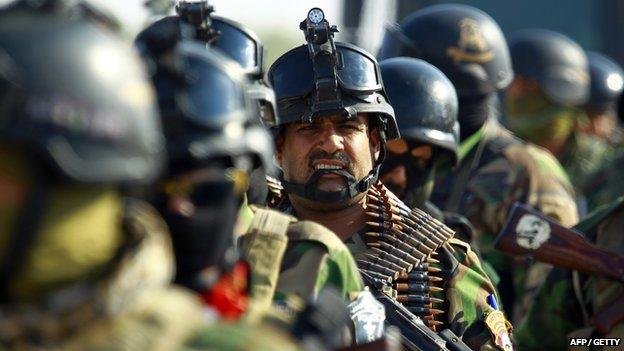
UK troops will help train Iraqi forces fighting IS, which includes the Iraqi police special forces
'Rooted out'
British troops would be able to pass on the "lessons we have learnt from Afghanistan", Mr Fallon added.
He said IS fighters were increasingly now "tucked away in towns and villages" as a result of air strikes.
"That means they have got to be rooted out by ground troops. This has to be done by an own-grown army, not by western groups."
He stressed that the US training centres - one based in Kurdistan and three near the Iraqi capital Baghdad - were "not where the fighting is".
"They are in safe areas but obviously there's always a small element of force protection."
The soldiers "will not be expected to fight a war but will be there to defend the British personnel if necessary", he added.
Shadow defence secretary Vernon Coaker said Labour supported the steps taken to assist Iraq's government in responding to IS.
"It is right that the UK's armed forces continue to provide training and equipment in support of this effort," he added.
"The government should provide clarity about the scale, scope and timeframe of the deployment of these further trainers.
"The defence secretary should clearly outline the numbers of military trainers involved and the work that they will be doing, so that there can be no misunderstanding about the role of British troops in Iraq."
US training
Large swathes of Syria and Iraq are currently under the control of IS extremists.
Pressure to provide more support to new Iraqi prime minister Haider al-Abadi to reclaim territory in the north and west has been growing.
The US has agreed to send around 500 soldiers to Iraq and elsewhere in the region, with the aim of retraining the Iraqi army.
BBC political correspondent Alan Soady said the UK deployment of a combat-ready protection force could prompt opposition from some people.
"Does it, will be the question, break David Cameron's pledge that there would be no British boots on the ground?" he said.
British forces were pulled out of Iraq in 2011, eight years after the mission that brought down Saddam Hussein.
- Published12 October 2014
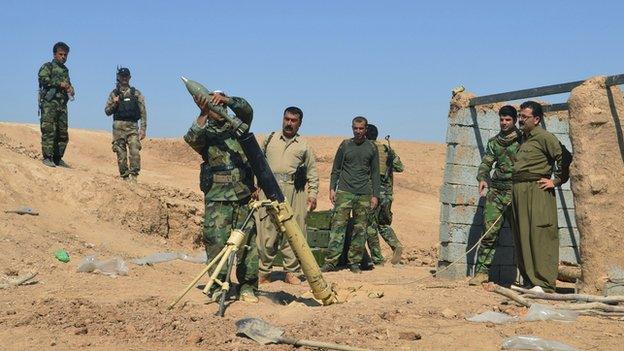
- Published5 November 2014
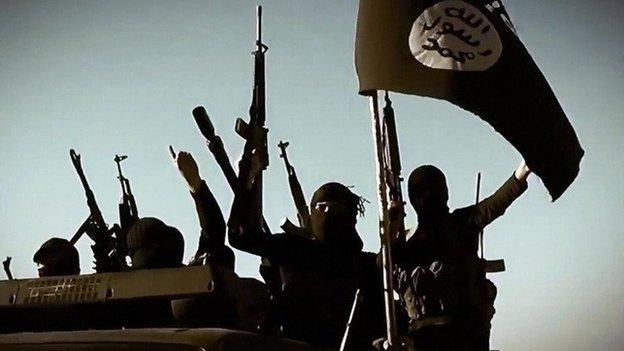
- Published28 March 2018
